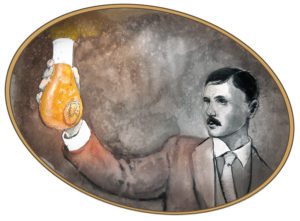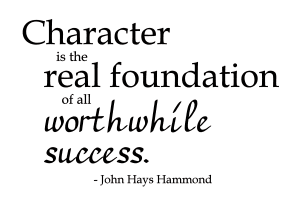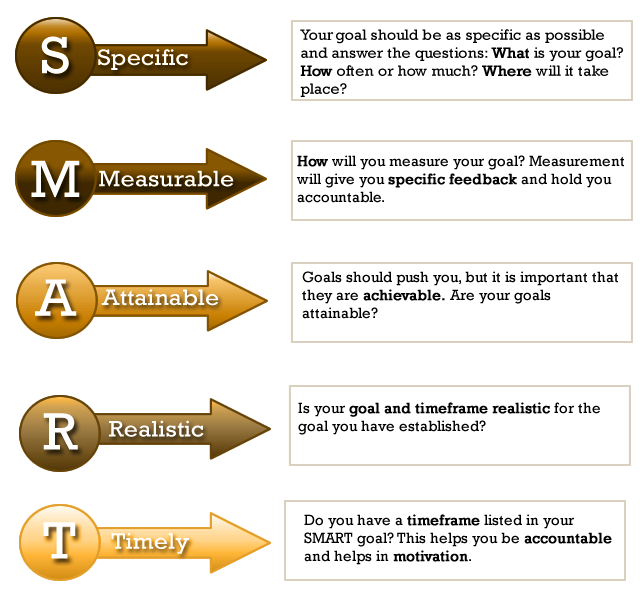In 1833, the birth and subsequent choices of one brilliant man made an enormously positive impact on the world.
That man was Alfred Nobel, the creator of the most sought after and prestigious set of awards in the world, the Nobel Prizes.
 A closer look however, at Nobel’s journey will surprise you; the road to this remarkable outcome was paved with one challenge after another reminding us that no matter how difficult and challenging things may be in life, “What Happens next is up to you.” In 1847, Nobel who was a student of science, chemistry and engineering met the inventor of an oily liquid substance that eventually became Nitroglycerine. While nitroglycerine had great benefits, it’s unpredictable and dangerous nature was cause for concern; however, the Nobel family including Alfred continued to investigate it’s potential for commercial and industrial uses.
A closer look however, at Nobel’s journey will surprise you; the road to this remarkable outcome was paved with one challenge after another reminding us that no matter how difficult and challenging things may be in life, “What Happens next is up to you.” In 1847, Nobel who was a student of science, chemistry and engineering met the inventor of an oily liquid substance that eventually became Nitroglycerine. While nitroglycerine had great benefits, it’s unpredictable and dangerous nature was cause for concern; however, the Nobel family including Alfred continued to investigate it’s potential for commercial and industrial uses.
The results initially were tragic when Alfred’s younger brother Emil and several other people were killed in a factory explosion. These Disasters encouraged Alfred to try to make Nitroglycerine safe but unfortunately it didn’t come without more tragedy when an another explosion at a company facility took the lives of 15 more people.
In 1867 after almost 20 years of failure and disappointment, Nobel invented an explosive that revolutionized the mining, demolition and construction industries and made him a very wealthy man; that invention was Dynamite! What makes this story different, intriguing and inspiring is what happens next. Through a calamity of errors and chance events, Alfred found out exactly what people thought of him and his invention. In 1888, after the death of his brother Ludwig, a local newspaper ran a long scathing obituary about him (Alfred) by mistake. This provided Alfred an opportunity granted to few people, to read their own obituary while still alive. He was scorned for being the man who made millions through the death of others, one paper wrote, “Rejoice, the Merchant of Death is dead!” You see what Nobel read in his obituary horrified him. The newspaper described him as a man who made it possible to kill more people more quickly than anyone else who ever lived.
 At that moment, Nobel realized two things: the first was if he didn’t do something this was the way he was going to be remembered and second and more importantly that this was absolutely NOT the Legacy he wanted to leave behind. Of course, crumpling up the newspaper and those who wrote the article was one option; however, not for Nobel. For him it was time to take positive action and make a positive impact on the world. In 1896 one year before Noble’s death, he signed his last will and testament which set aside basically his entire estate to establish the 5 Nobel Prizes for outstanding achievement in Literature, Science Medicine, Economics and of course Peace.
At that moment, Nobel realized two things: the first was if he didn’t do something this was the way he was going to be remembered and second and more importantly that this was absolutely NOT the Legacy he wanted to leave behind. Of course, crumpling up the newspaper and those who wrote the article was one option; however, not for Nobel. For him it was time to take positive action and make a positive impact on the world. In 1896 one year before Noble’s death, he signed his last will and testament which set aside basically his entire estate to establish the 5 Nobel Prizes for outstanding achievement in Literature, Science Medicine, Economics and of course Peace.
As I close this Blog, like Nobel I have two thoughts:
- The first is thinking about how you want your obituary to read could motivate you to rewrite your life script and change the way you’re currently spending your life.
- The second thought: no matter how bad things appear or how off course you are in life, it’s never too late to make a change, ultimately “What Happens next is up to you!”


